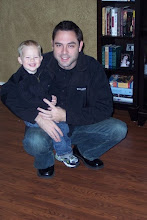I don't pretend to be a sociologist. I do enjoy the attempt at learning why people do certain things. Lately, I've been confronted with the reality of generational gaps. I'm trying my best to see things from multiple perspectives but I'm really struggling.
I recognize that people's actions are a product of multiple factors. Upbringing, experience, fears, passions, beliefs etc. All these things drive behavior. I'm finding difficulty especially when it comes to belief driving behavior. If we all claim to follow the same Jesus, how can we bear His name and yet act so differently? There are some who are overtly generous in their compassion and others who are as tight-fisted as the day is long.
Perhaps this takes us back to the discussion of lordship and salvation (or better stated lordship versus salvation in some circles). Whatever the fundamental discussion is, the difficulty remains to bridge the gap between the generations. The Scriptures are clear that God will use men and women of all ages in His plans, eg Joel 2, sons, daughters, old men, young men, etc.
So, hypothetically, how do we bridge the generational gap? There are no wrong answers but dialogue is appreciated.
Thoughts?
Subscribe to:
Post Comments (Atom)

1 comment:
What I try to do is to remember that for 30 years generational gaps have been encouraged in the church via the birth of modern youth and children's minsitry models. It takes time for decades of habits to be broken. I've tried in my time at Slidell to minimize the number of gap-building activtiies. We are trying to find more opportunities for people of all ages to be together in worship, Bible study, fellowship, and every day life.
For example, we started a small groups ministry without providing childcare at the church. We encouraged the groups themselves to take care of the needs of the group members. It worked. Parents brought their young children to Bible study, and everyone was fine with it. We also did not build a small group just for youth. We expected them to attend with their parents or other adults. That has been slow getting momentum behind it, but we are trying to be patient with the paradigm shift.
Post a Comment